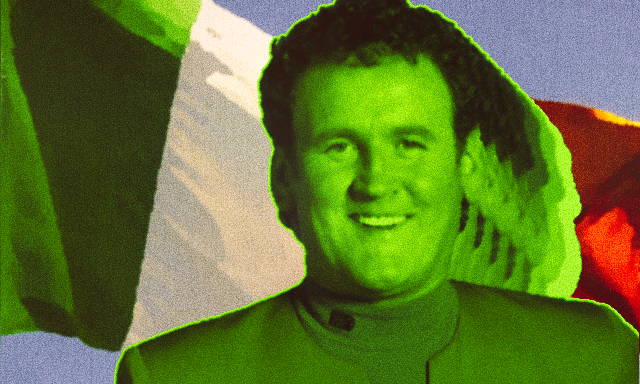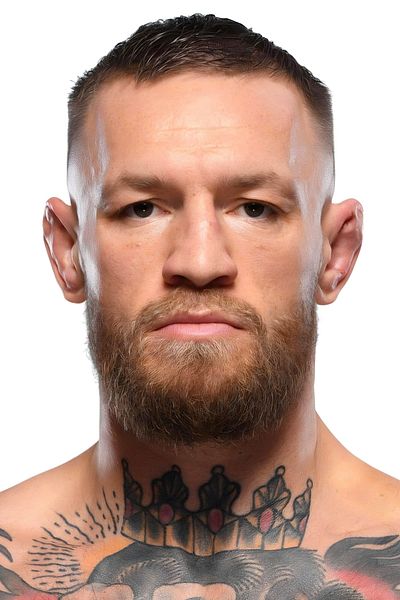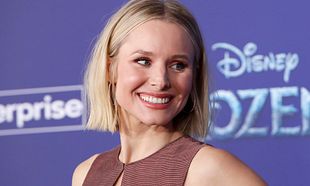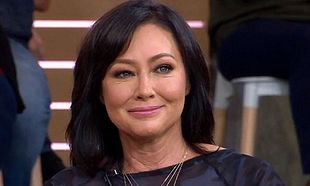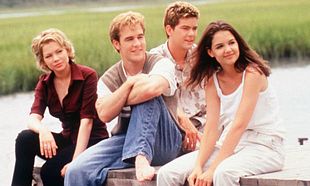Whether we like to admit it or not, there's no denying that Irish people have a problem with how we're perceived in the world at large.
If an actor or musician is referred to as British, there's uproar on social media. If someone makes a disparaging comment against Ireland in a public forum, it's the same thing. From off-hand comments by Tory MPs thinking Ireland should "know its place" in Brexit negotiations, to how pretty much every far-right US Republican has an Irish-linked surname, we have a distinct sensitivity to how we're perceived by the world at large.
For those closer to home, it's the same. Actors, athletes, artists, whatever - we care because they're ambassadors of our nation and represent the ideals of our identity. When it comes to popular culture, however, it's a different story.
There are thousands of examples of terrible Irish accents in television and movies, all with atrociously pronounced surnames and usually relying on the worst kind of stereotyping. Generally speaking, we tend to be relatively good-natured about it because we accept that it isn't us. It's merely a caricature.
The best example of this is probably 'Twilight: Breaking Dawn, Part I'. There was an Irish coven of vampires that - no joke - included a red-haired woman, a man wearing a tweed jacket and flat cap with fingerless gloves, and a young girl with ringlets.
When they came on screen at the Irish premiere of the movie, the entire audience erupted into spontaneous laughter at the very sight of them. It was infectious. Any time they opened their mouths for the rest of the movie or even appeared in the background, it was as if the movie turned into a full-blast comedy.
'The Simpsons' set an entire episode in Dublin and, again, featured all the stereotypes we've come to expect. 'Family Guy' was the same, with the flight from Quahog to Dublin setting down in a sea of bottles of alcohol. Another scene saw Peter visit an Irish heritage museum which featured the day in the life of an Irishman - drinking and striking women - and an Irishwoman - praying and then popping out a child.
Again, nobody really cared and it was all more or less taken in the spirit that it was meant because it's a fictional representation. It has no basis in reality any more than the stereotype that all Americans are loud, stupid and racist.
To be clear, there's been precious few reliably authentic representations of Irishness or Irish people in popular culture. 'Overwatch' made some headlines when it introduced a new character voiced by Irish actress Geneieve O'Reilly. The character, named Moira, is described as a scientist who's "on the cutting edge of genetic engineering, searching for a way to rewrite the fundamental building blocks of life."
Her uniform isn't green, and while she may have a few lines as Gaelige, her being Irish isn't central to it. The only character like this - where their Irishness wasn't necessarily an abiding characteristic - was Chief Miles O'Brien, from 'Star Trek: The Next Generation' and 'Star Trek: Deep Space Nine'.
As described by executive producer Ira Steven Behr, O'Brien was one of the reasons he specifically came to work on the show. In our interview with Behr, he said of O'Brien that "he was a human even among a lot of stock characters," and that he was "not the guy who's just going to fly through life and come up with the decision."
In a series, and a franchise, where characters were perfect in every conceivable way, and famously had no conflicts, O'Brien felt authentic and flawed.
One particular episode - 'Hard Time' - from 'Deep Space Nine' saw him dealing with the effects of post-traumatic stress disorder, after he's subjected to implanted memories of a traumatic incarceration on an alien planet.
Another episode in 'The Next Generation' followed a similar vein and saw O'Brien recounting a brutal massacre in which he killed a Cardassian soldier at close range. Later in the episode, O'Brien sings a few bars of 'The Minstrel Boy' with his former commanding officer, played by character actor Bob Gunton.
Throughout both series, O'Brien's Irishness came up here and there, but it was never a focal point of his personality. In fact, whenever it was broached, it was done with a certain level of wry humour and levity.
O'Brien frequently remarked how replicated food wasn't the same as real food. He even tried once or twice to get Dr. Bashir, his British colleague on 'Deep Space Nine', to try out a holo-play based on Irish early history and mythology.
What's more, Colm Meaney's performance included his own Dublin accent. It was neither flattened nor exaggerated for effect; it was simply a part of him and his performance as much as every other part of Meaney the actor.
In a wonderful sort of way, his flat Dublin tones played into O'Brien's slightly exasperated way of dealing with those around him. It was almost idiomatic; you half-expected O'Brien to tell Worf or Sisko to cop on whenever things got out of control.
O'Brien, and Meaney's performance of the character was so quintessentially Irish that he couldn't try to be anything other than what he was - which was authentic and grounded in a way that no other character in the series really was.
When we look at other Irish characters and representations in other pop culture ephemera, there's always something slightly histrionic about it. They're invariably seen as crazed, loud, probably with drink taken, and often as some kind of comic relief. O'Brien could be all of those things, sure, but he was never defined by it and it never determined who he was.
He got on with it, in a way that only he could.
